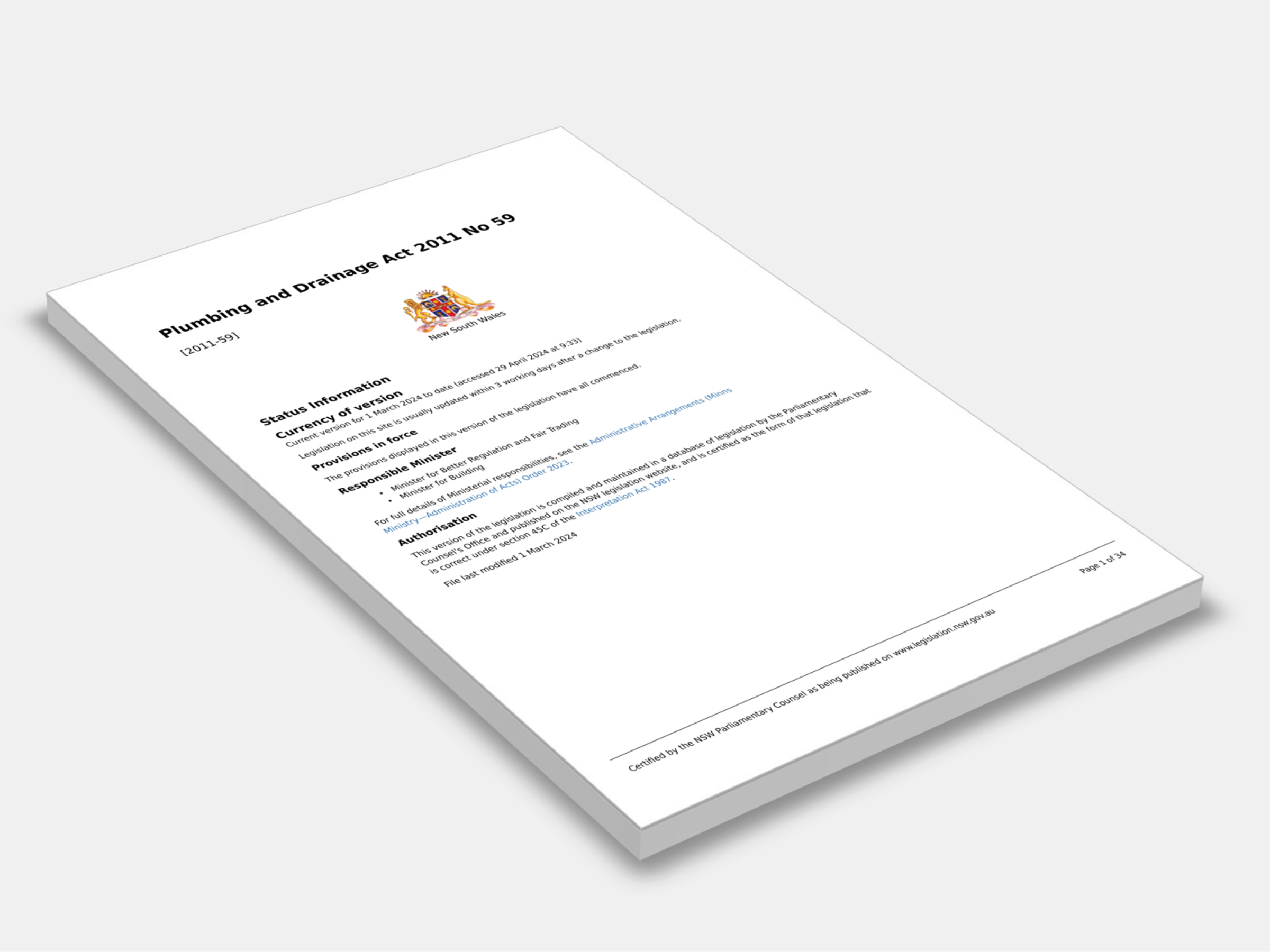
Type
Publisher
NSW Government
Publisher
NSW Government
Version:
2011.
(Current)
Short Description
This Act is the Plumbing and Drainage Act 2011. (NSW legislation.)
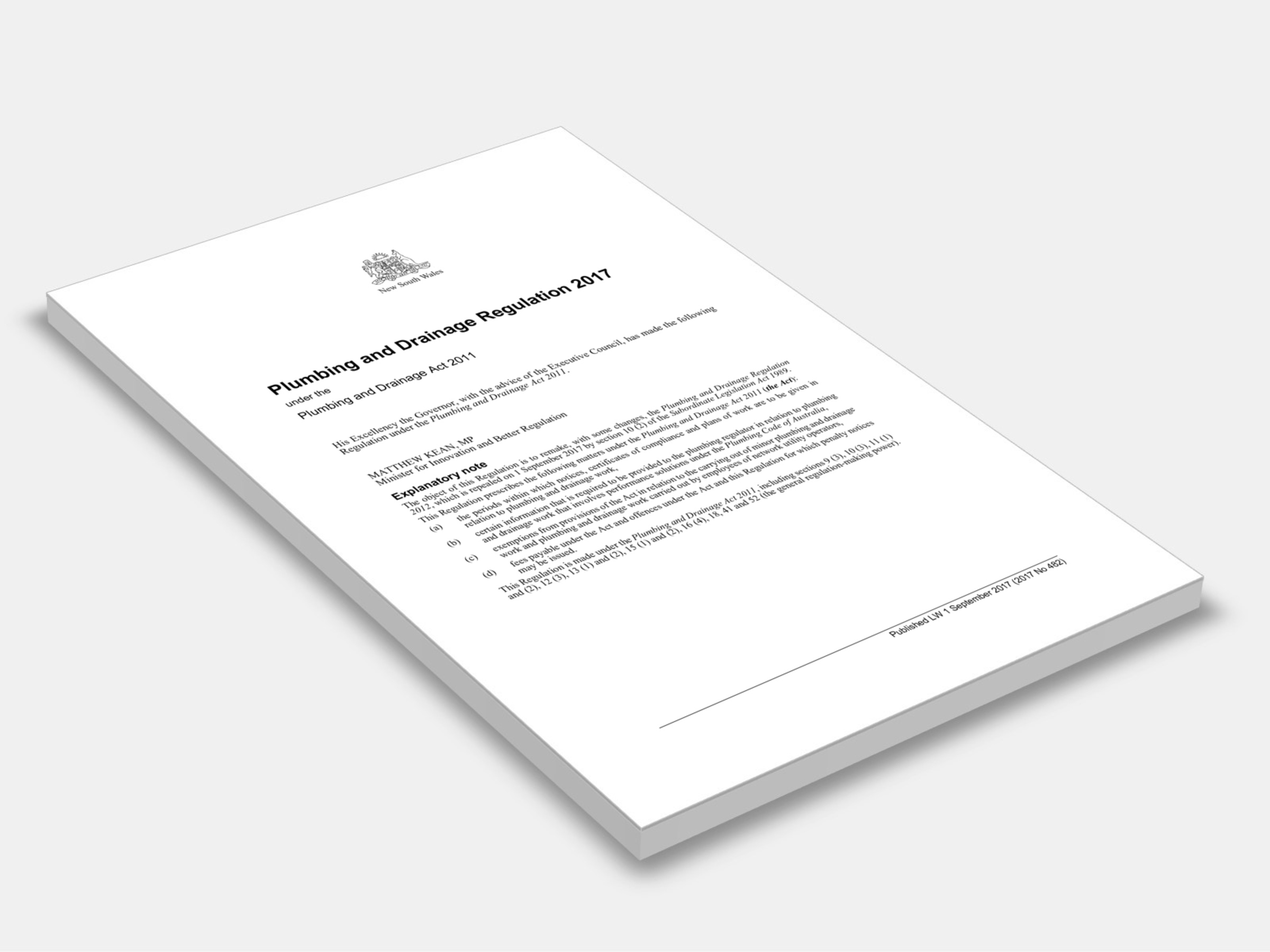
Type
Publisher
NSW Government
Publisher
NSW Government
Version:
2017.
(Current)
Short Description
This Regulation is the Plumbing and Drainage Regulation 2017.(NSW legislation.)
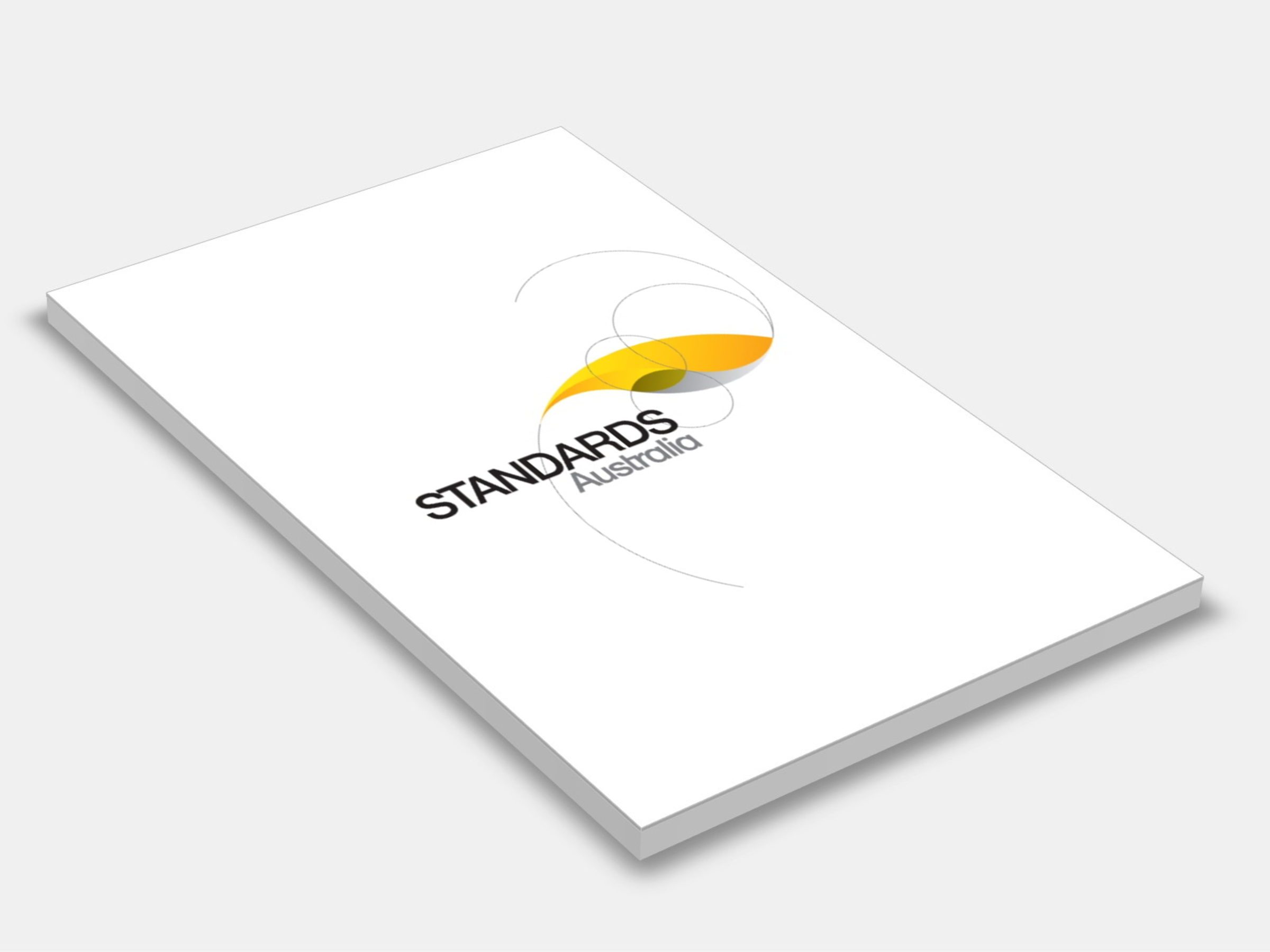
Type
Publisher
Standards Australia
Publisher
Standards Australia
Version:
Sixth Edition 2017.
(Current)
Short Description
Provides requirements for the planning, design, construction, and safe operation of all installations in which flammable or combustible liquids are stored or handled. In separate sections it deals with minor storage, package storage and handling, storage in tanks, fuel dispensing, piping and tank auxiliaries, operations and fire protection facilities. Appendices deal with tank venting, combustion characteristics, fire exposure protection, gas-freeing precautions and principles, and power station and grid transformers.
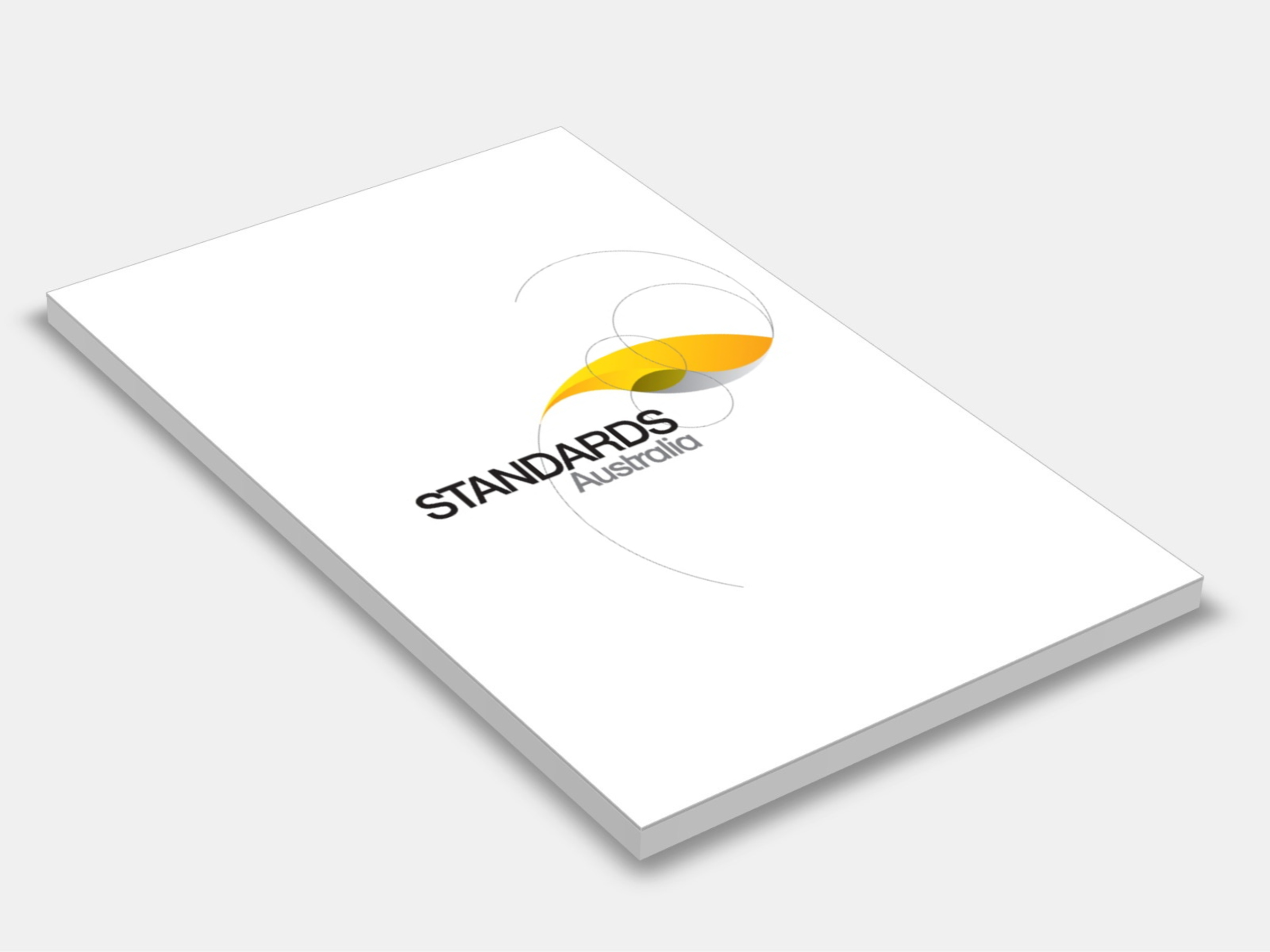
Type
Publisher
Standards Australia/Standards New Zealand
Publisher
Standards Australia/Standards New Zealand
Version:
Third Edition 2003.
(Current)
Short Description
Specifies requirements for the design, construction, location, and operation and testing of systems for the storage and handling of anhydrous ammonia. Requirements for the management of emergencies involving anhydrous ammonia and for the fire protection associated facilities are also specified.
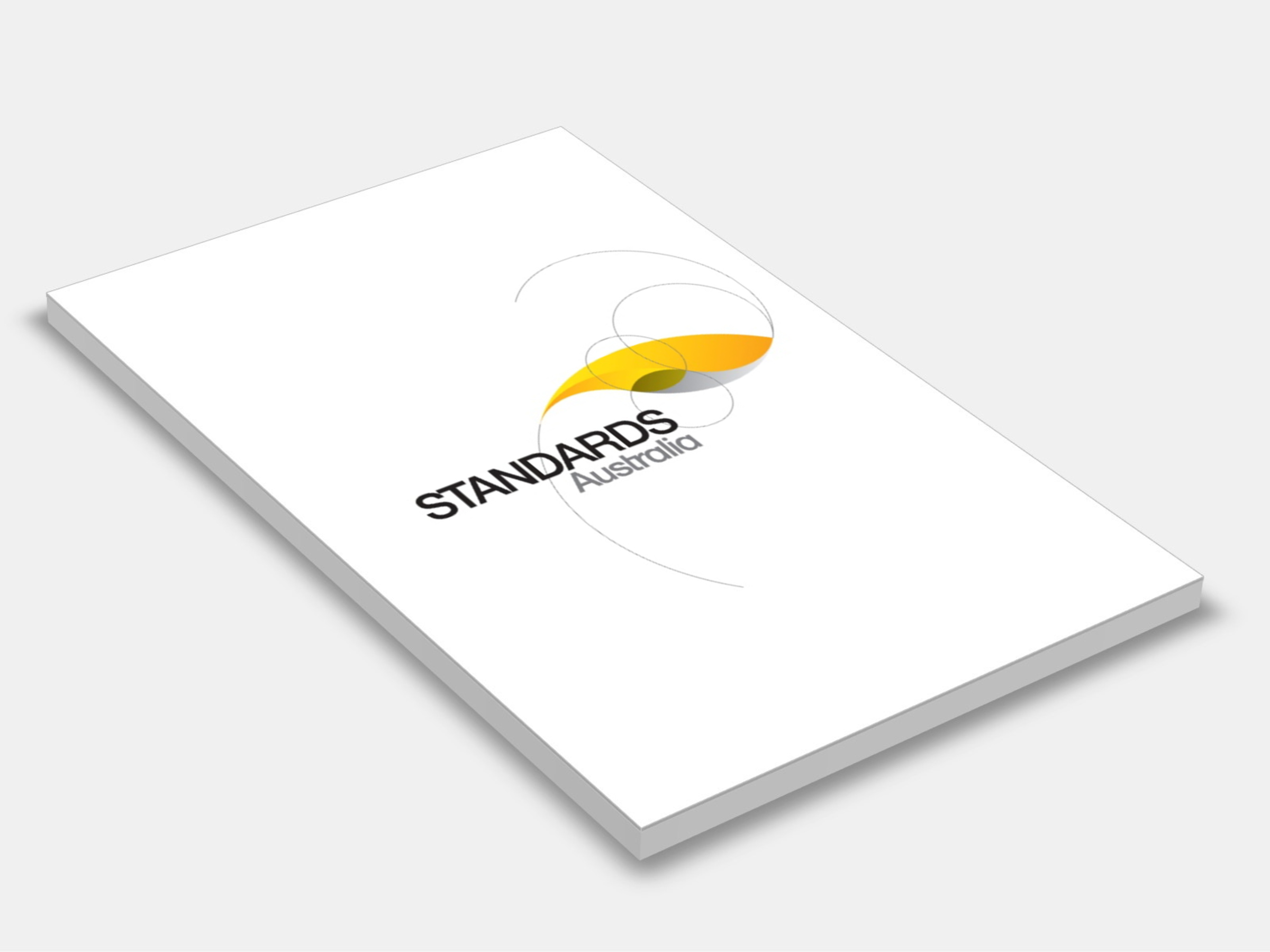
Type
Publisher
Standards Australia
Publisher
Standards Australia
Version:
Second Edition 2004.
(Current)
Short Description
Sets out requirements and recommendations for the storage and handling of gases in cylinders, as classified as Class 2 dangerous goods in the ADG Code. It applies to stores where individual gases (other than those which are covered by specific Australian Standards) are kept, and to stores where more than one type of gas is kept. Requirements for the location, construction and ventilation of stores are given. Recommendations for the management of emergencies and actions in the event of fire are provided in appendices.
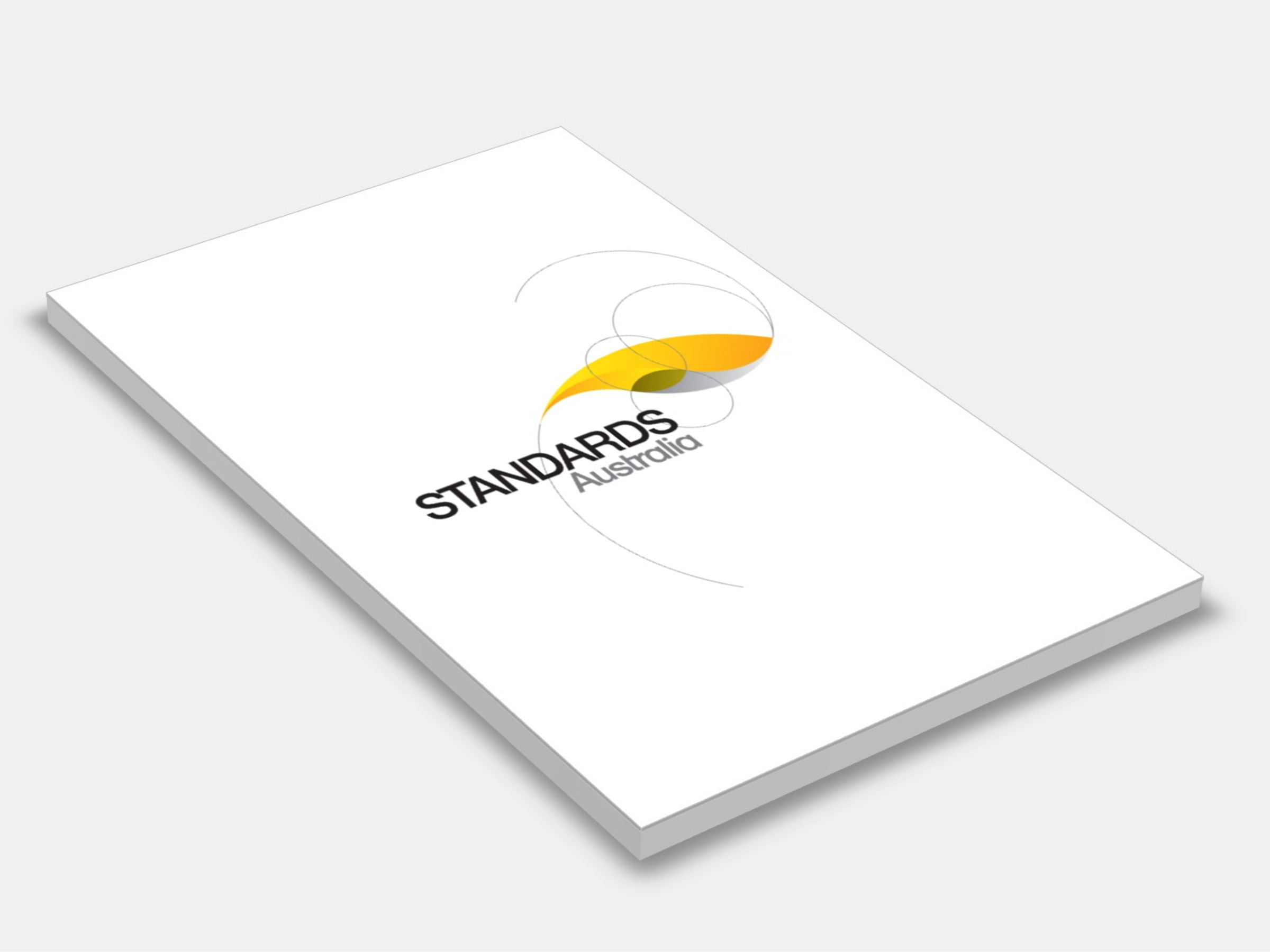
Type
Publisher
Standards Australia/Standards New Zealand
Publisher
Standards Australia/Standards New Zealand
Version:
First Edition 1997.
(Pending Revision)
Short Description
Sets out requirements and recommendations for the storage and handling of toxic substances that in Australia, meet the Class 6.1 classification criteria of the ADG Code and in New Zealand, the Class 6.1 classification criteria of the IMDG Code and Schedules 1-4 of the New Zealand Toxic Substances Regulations 1983. The Standard applies to Class 6.1 substances and may also apply to substances of other classes having a 6.1 Subsidiary Risk. A discussion of the hazards presented by toxic substances and a bibliography of documents providing guidelines on the preparation of emergency plans are provided in appendices.
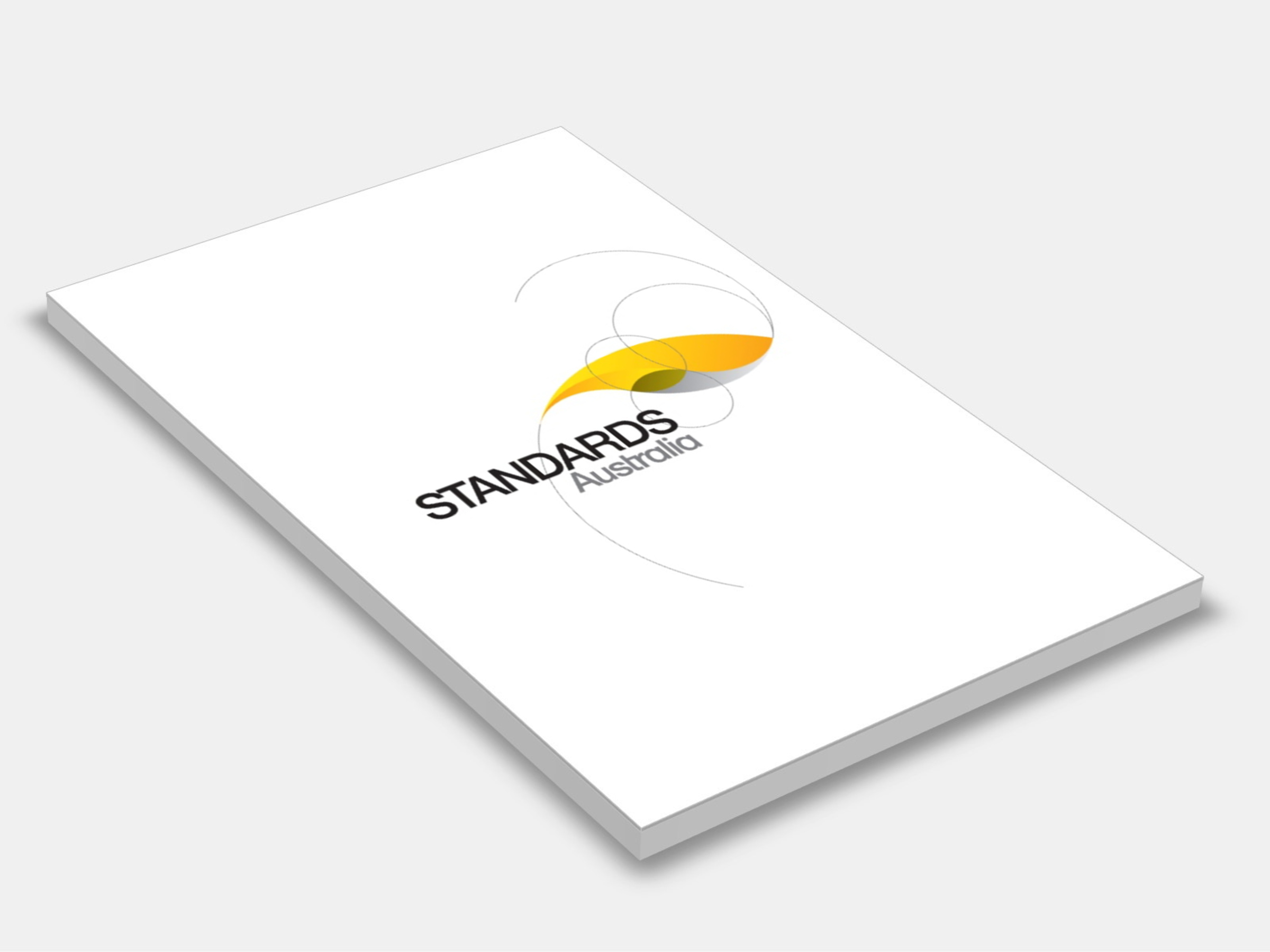
Type
Publisher
Standards Australia/Standards New Zealand
Publisher
Standards Australia/Standards New Zealand
Version:
First Edition 2000.
(Pending Revision)
Short Description
Sets out requirements and recommendations for the safe storage and handling of Class 9 (miscellaneous) dangerous goods and articles, in packages, IBCs and bulk. Advice is given on fire protection, waste disposal, operations and personnel safety. Guidelines for emergency procedures are also provided.
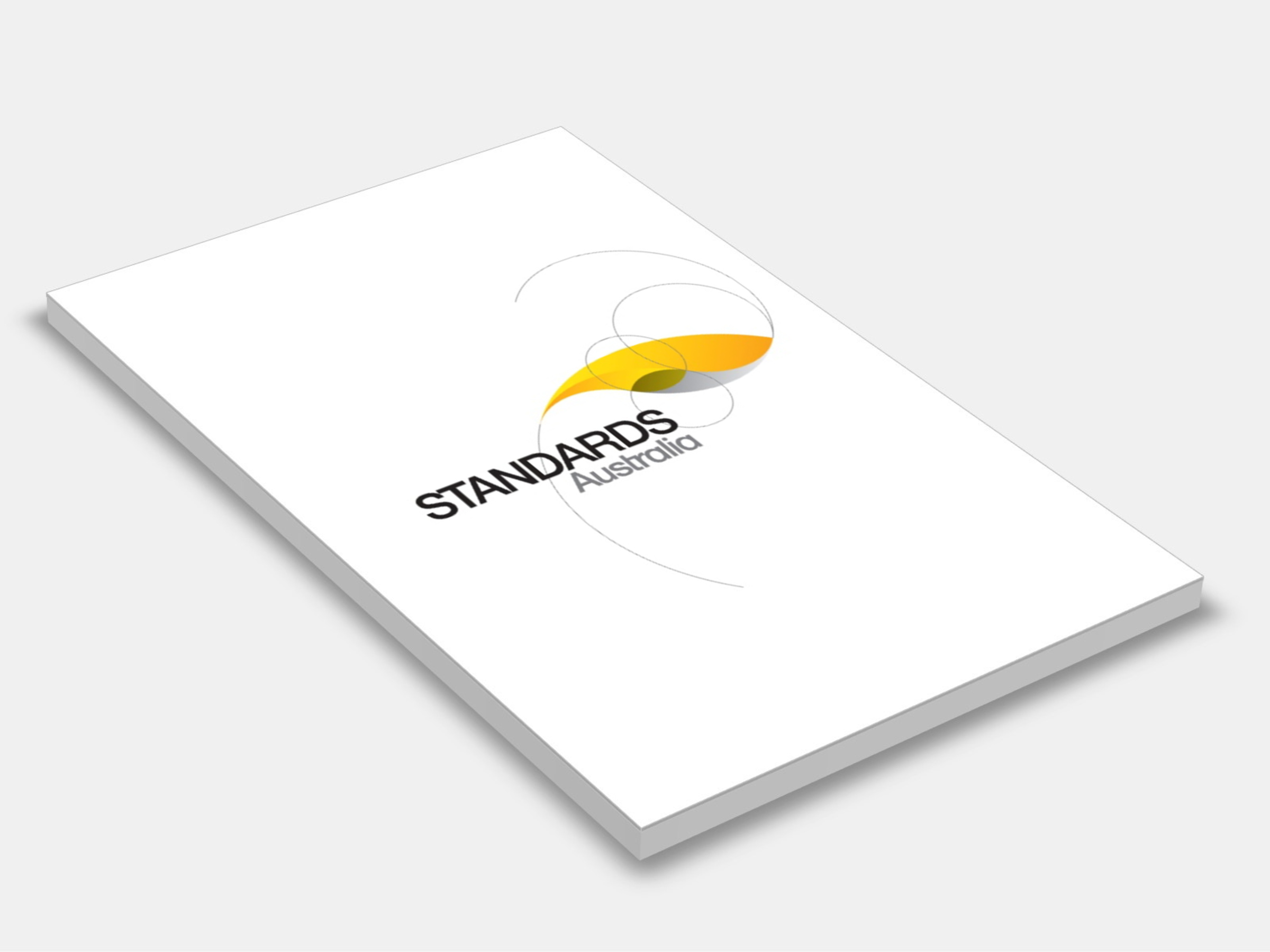
Type
Publisher
Standards Australia/Standards New Zealand
Publisher
Standards Australia/Standards New Zealand
Version:
First Edition 2012.
(Current)
Short Description
Sets out requirements and recommendations for the safe storage and handling of Class 4 dangerous goods as classified in the ADG Code, for Australia, and the HNSO Act, for New Zealand.
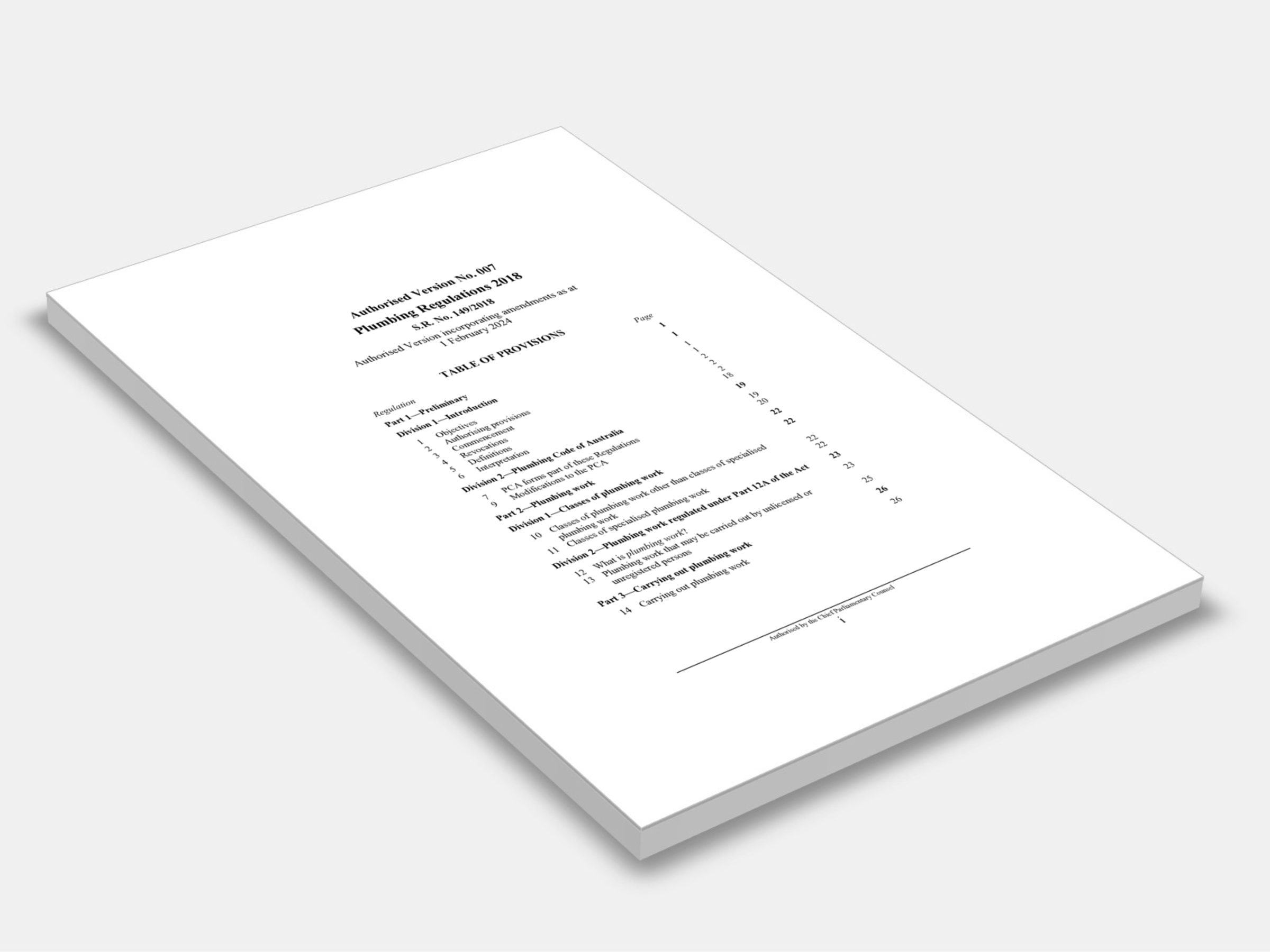
Type
Publisher
Victorian Government
Publisher
Victorian Government
Version:
2018.
(Current)
Short Description
Authorised Version incorporating amendments as at 1 February 2024. (VIC legislation.)
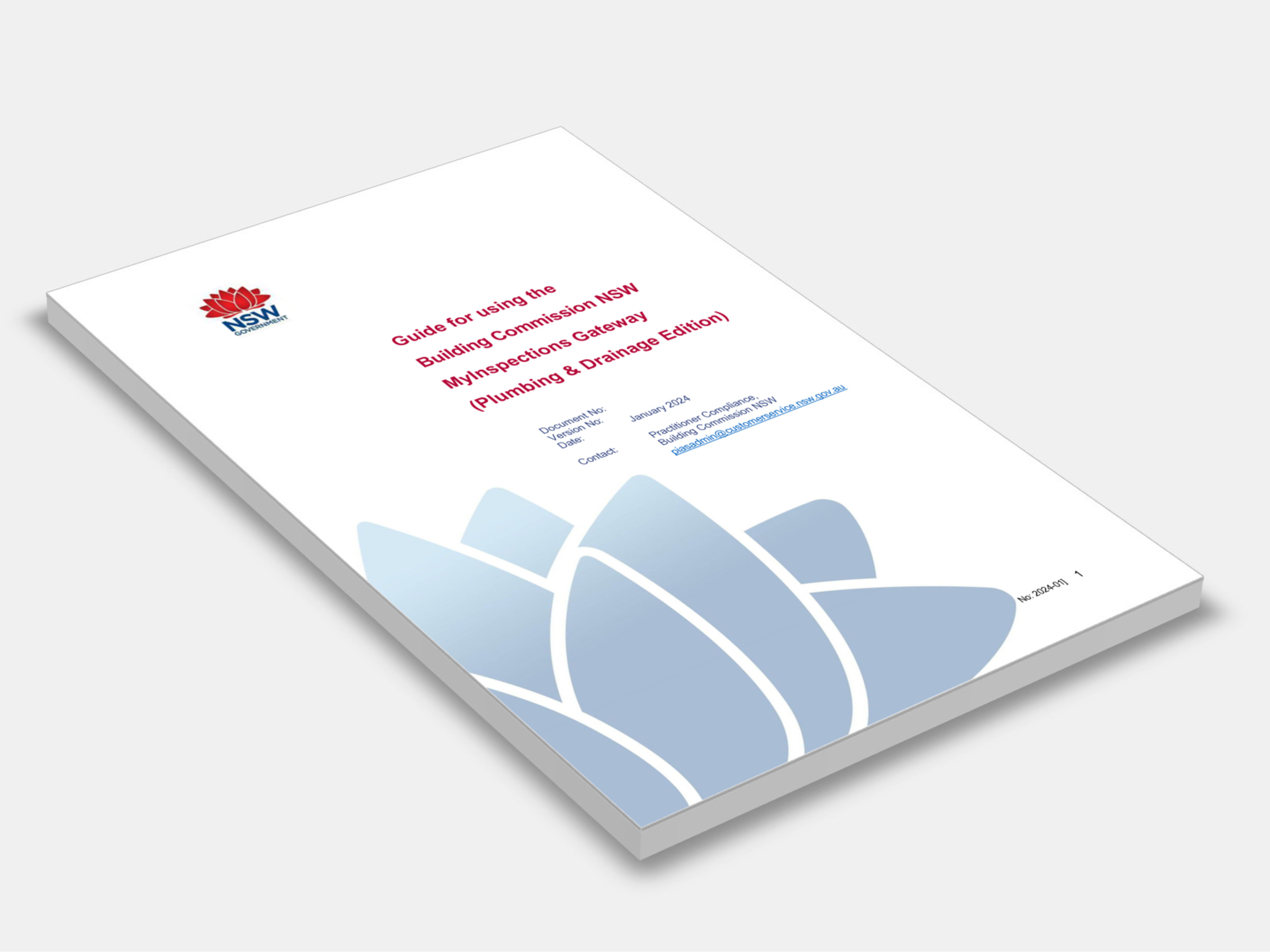
Type
Publisher
NSW Government
Publisher
NSW Government
Version:
2024.
(Current)
Short Description
The MyInspections Gateway has been developed and implemented by the Building Commission NSW to allow an easy way for users to make payments and submit applications and documents in relation to functions regulated by the Building Commission NSW.